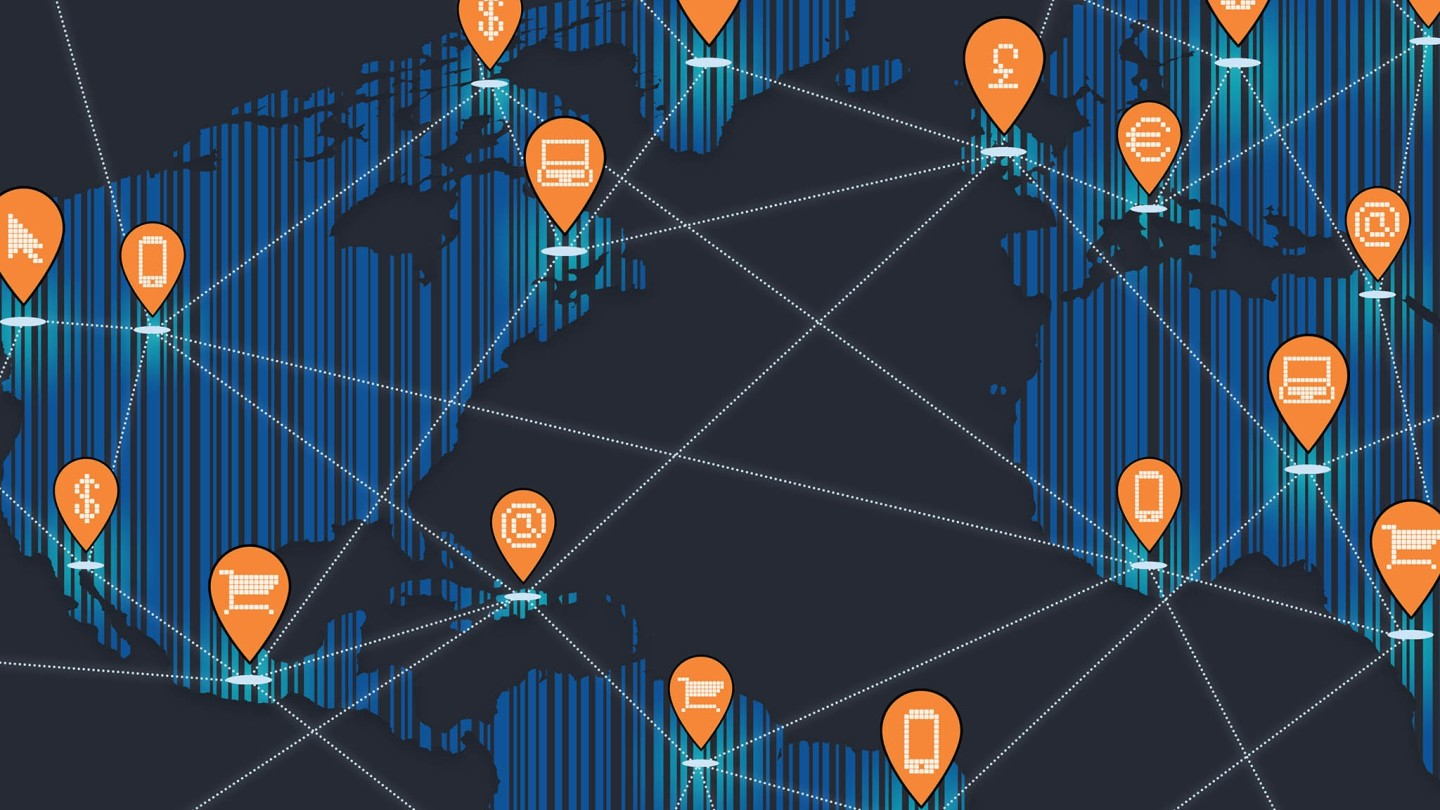The Digital Economy: Transforming Global Markets Through Innovation and Connectivity

The rise of the digital economy has fundamentally reshaped how people and businesses interact, consume, and innovate. Unlike the traditional economy, which relies on physical assets and infrastructure, the digital economy is powered by data, connectivity, and technology. This new economic paradigm is driven by advancements in internet access, cloud computing, artificial intelligence (AI), and e-commerce platforms, creating new opportunities while also presenting unique challenges. In this article, we explore the evolution of the digital economy, its impacts on global markets, and the challenges societies must address to maximize its benefits and mitigate its downsides.
What is the Digital Economy?
The digital economy is an umbrella term for economic activities that rely on digital technologies and digital platforms. It includes a broad array of industries and sectors, from e-commerce and financial technology (fintech) to online education, digital health, and cloud-based services. Central to the digital economy are the vast amounts of data generated by businesses and individuals alike, which are analyzed and leveraged to improve efficiencies, deliver personalized experiences, and create new products.
Key Drivers of the Digital Economy
Several factors contribute to the exponential growth of the digital economy, each shaping its structure and impact on global markets. These factors include advancements in digital infrastructure, data as a strategic asset, the rise of digital payment systems, and the increasing influence of platforms and ecosystems.
1. Expansion of Digital Infrastructure
The backbone of the digital economy is digital infrastructure, encompassing everything from high-speed internet and data centers to cloud computing and 5G networks. Internet penetration continues to rise globally, with even remote and underserved areas gaining access through satellite networks and affordable mobile data plans. The rollout of 5G technology promises to increase internet speeds and reduce latency, unlocking potential for real-time data processing, smart cities, and connected devices. This expanding infrastructure is enabling businesses to operate across borders and empowering consumers with unprecedented access to information and services.
2. Data as a Strategic Asset
Data is often referred to as the “new oil” in the digital economy, highlighting its role as a valuable resource that can drive competitive advantage. Organizations collect data to understand consumer preferences, optimize supply chains, and predict market trends. Advanced data analytics, combined with AI and machine learning, allow companies to process massive datasets in real-time, creating actionable insights that can enhance decision-making, improve customer experiences, and enable predictive maintenance in manufacturing and logistics.
3. Rise of Digital Payments and Fintech
Digital payment systems and financial technology (fintech) have transformed how people conduct transactions, providing a seamless alternative to traditional banking. Mobile payment apps, digital wallets, and cryptocurrencies allow users to make instant transactions, whether they are paying bills, shopping online, or transferring money across borders. This transformation has increased financial inclusion, particularly in emerging markets, where access to traditional banking services has been limited. The rapid growth of fintech has also spurred innovation in related fields, such as peer-to-peer lending, digital insurance, and robo-advisory services, which are making financial services more accessible and affordable.
4. Influence of Platforms and Ecosystems
The digital economy is heavily shaped by platforms and ecosystems that connect buyers and sellers, employers and job seekers, content creators and consumers. Companies like Amazon, Google, and Alibaba have built powerful digital ecosystems that span e-commerce, digital advertising, cloud services, and beyond. These platforms benefit from network effects, where increased user participation improves the overall value of the platform, creating a cycle of growth and innovation. However, this dominance has also raised concerns about market concentration, as these platforms wield significant influence over the flow of information, goods, and services.
Impacts of the Digital Economy on Global Markets
The digital economy is reshaping global markets in profound ways, transforming trade, labor dynamics, and consumer behavior. It has opened up new economic opportunities but also presents several challenges that require careful navigation.
1. Accelerated Global Trade and E-commerce
E-commerce has become a major driver of international trade, as digital platforms allow businesses of all sizes to reach customers across the globe. According to the United Nations Conference on Trade and Development (UNCTAD), global e-commerce sales reached $26.7 trillion in 2020, reflecting an accelerated shift toward online shopping. Small and medium-sized enterprises (SMEs) now have access to international markets through platforms like Shopify and Etsy, where they can compete with larger corporations on a global stage. However, this rapid growth in e-commerce has also created challenges for regulatory frameworks, such as managing data privacy, taxation, and cross-border payment security.
2. Transformation of the Labor Market
The digital economy is reshaping the workforce, creating new job opportunities in fields such as data science, cybersecurity, software development, and digital marketing. The gig economy, facilitated by platforms like Uber, Fiverr, and Upwork, offers workers flexible employment options that were previously unavailable. However, this transformation also raises concerns about job security, labor rights, and income inequality, as gig workers often lack the benefits and protections of traditional employment. Moreover, as automation and AI continue to evolve, some sectors may experience job displacement, particularly in industries where repetitive tasks can be automated.
3. Shift in Consumer Behavior
Consumers in the digital economy have access to a vast array of products and services at their fingertips. This has shifted consumer expectations, with an emphasis on convenience, speed, and personalization. Digital platforms enable consumers to compare prices, read reviews, and purchase items from around the world, creating a more competitive marketplace. However, the rise of digital consumption has also raised ethical and environmental concerns, such as data privacy, digital addiction, and the environmental impact of packaging and logistics for online shopping.
4. Innovation in Financial Services and Inclusion
Digital finance has expanded financial inclusion by offering services to individuals and businesses that previously lacked access to traditional banking. Mobile banking and digital wallets, particularly in Africa and Southeast Asia, have brought millions of unbanked individuals into the financial system, enabling them to save, invest, and access credit. Furthermore, blockchain technology and cryptocurrencies are challenging traditional financial institutions, offering decentralized alternatives that reduce transaction costs and enhance transparency. However, the growth of digital finance also presents regulatory challenges, as governments work to balance innovation with consumer protection and financial stability.
Challenges of the Digital Economy
While the digital economy offers numerous benefits, it also presents significant challenges that require proactive policies and responsible governance. These include issues related to digital inequality, cybersecurity, data privacy, and market concentration.
1. Digital Inequality and the Digital Divide
The benefits of the digital economy are not evenly distributed, with significant disparities in access to digital infrastructure, education, and resources. The digital divide is particularly evident between urban and rural areas, and between developed and developing countries. Addressing digital inequality requires investment in affordable internet access, digital literacy programs, and infrastructure development to ensure that all individuals and communities can participate in the digital economy.
2. Cybersecurity and Data Privacy
As businesses and individuals increasingly rely on digital platforms, the risks of cyberattacks and data breaches have escalated. Cybercriminals are exploiting vulnerabilities in digital systems, resulting in financial losses, data theft, and reputational damage. Moreover, the rise of digital surveillance and data collection has raised concerns about privacy and consent, with consumers becoming more aware of how their data is being used. Governments and organizations must implement strong cybersecurity measures and transparent data privacy policies to protect users and build trust in the digital economy.
3. Market Concentration and Competition
The digital economy has given rise to large platforms that wield significant influence over markets and consumers. Companies like Amazon, Google, and Facebook have created ecosystems that capture vast amounts of data, giving them a competitive advantage and making it difficult for smaller businesses to compete. This market concentration raises concerns about monopolistic practices, data control, and consumer choice. Policymakers are grappling with how to regulate these tech giants, with some advocating for antitrust measures to promote competition and protect smaller players.
The Future of the Digital Economy
The digital economy is poised to continue its rapid expansion, with emerging technologies such as artificial intelligence, blockchain, and quantum computing likely to drive further innovation. In the future, we may see a more integrated global economy where digital platforms facilitate seamless cross-border trade, digital payments enhance financial inclusion, and smart cities improve quality of life through connected infrastructure.
However, realizing the full potential of the digital economy will require a collaborative approach between governments, businesses, and civil society. Policymakers must develop frameworks that encourage innovation while addressing concerns about inequality, cybersecurity, and market concentration. Meanwhile, businesses must adopt ethical practices, prioritize data privacy, and work towards closing the digital divide.
Ultimately, the digital economy represents a new frontier in human progress, one that can unlock unprecedented opportunities for economic growth, social development, and technological advancement. By navigating its challenges responsibly, societies around the world can harness the power of the digital economy to build a more inclusive, innovative, and resilient global economy.





